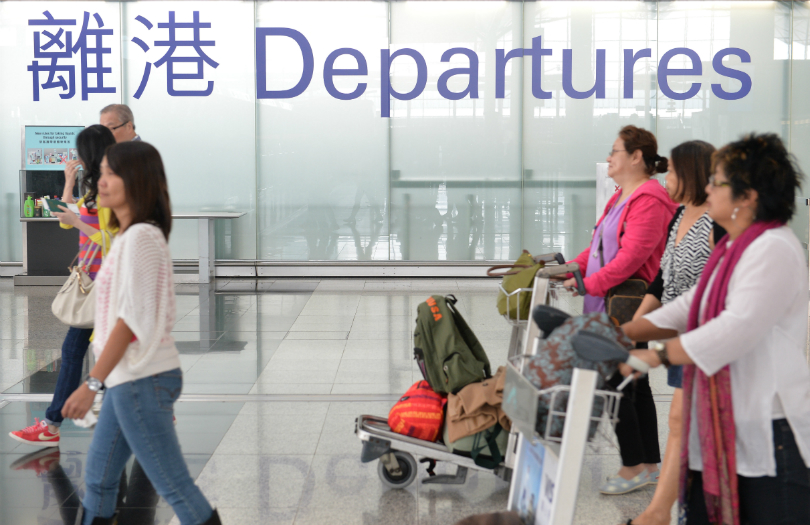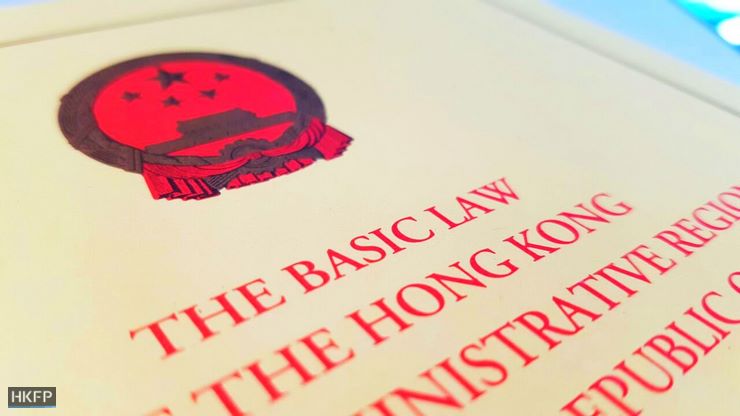It sure is easy to get depressed about the situation in Hong Kong. Nevertheless, despite the difficulties of rising above current concerns, those who are on the right side of history have reasons for optimism… even though local optimists can easily be dismissed as unrealistic utopians.
Right now however things look pretty bleak. Rather shockingly a survey conducted last year by Chinese University researchers estimated that some 33 per cent of Hong Kong’s population were considering emigration. The reasons most frequently cited were political.

The fact that a third of Hong Kong people want to leave is remarkable, even though most will not actually go. It reflects a sense of despair and hopelessness.
This is not a unique phenomenon. Interestingly this sense of despair is more often evident in affluent countries than in places where it would be imagined that there is far more cause for concern.
Hong Kong circumstances are probably not unique but they most certainly are unusual; even its designation as a Special Administrative Region is somewhat bizarre and follows a long line of “special regions” designated by one-party states as places where different sets of rules are supposed to apply.
Tibet, for example, is supposed to be an “autonomous region” of the PRC; the same applies to the so called autonomous Xinjiang Uyghur region. The now defunct Soviet Union specialised in “autonomous republics”, but like those of the PRC they enjoyed nothing more than a sham autonomy.
Memories of discussing this kind of sham remind me of my time as a student listening to lectures on the Soviet Union given by the anti-Communist historian Tibor Szamuely who, in his wonderful Hungarian accent, loved reading out great chunks of the Soviet constitution. With a flourish he would slam shut the book, look up and say: “Ladies and gentlemen, every word I have just read to you is a lie… it is complete and total rubbish.”
Yet the constitutional arrangements for Hong Kong, and to a lesser extent Macau, are different because they do indeed have separate and functioning legal systems, alongside other important aspects of autonomy.

It is precisely because this autonomy is under constant threat and likely to come under greater pressure that people are depressed. We have recently seen the Basic Law Committee Chairman Li Fei proclaim that there is no difference between calling for self-determination and advocating Hong Kong independence. This only serves to confirm that the SAR’s autonomous status is now resting on very fragile pillars.
Democrats, derided as hopeless idealists, insist that this level of slippage needs to be challenged. Meanwhile both government loyalists and the usual rabble of so-called realists peddle the line that Hong Kong will only flouirsh if its people would just shut up and obey.
Is it really unrealistic to believe what the Basic Law unambiguously says about the SAR exercising “a high degree of autonomy” or to have confidence in the words about the Hong Kong SAR safeguarding its “rights and freedoms… in accordance with law”?
Have we now reached the point where it can be said that the Basic Law’s carefully constructed “general principles” are meaningless? The “realists” tell us not to even ponder this matter because the Basic Law means whatever the Standing Committee of the National People’s Congress says it means; indeed Li Fei has made this point quite explicitly.

Maybe the time has come for more Hong Kong people to read the recent book by the Dutch historian Rutger Bergman called “Utopia for Realists.” It is a stirring call for people to raise the level of their expectations, cease being afraid of big ideas and embrace utopianism, not necessarily in one big swallow but at least in incremental chunks.
He approvingly quotes Oscar Wilde’s wonderful line about “a map of the world that does not include Utopia is not even worth glancing at.” What he demonstrates is that practically every significant development of economic and social progress has come from utopians.
These are the pioneers who, for example, believed that people would be able to fly through the skies in machines or even prolong life by use of yet to be proven medications. Were it not for utopians slavery would still be commonplace, women most certainly would not have the vote and every single oppressive totalitarian regime would still be in place.
To challenge “realities” of the status quo requires a kind of utopian thinking. Here in Hong Kong utopians can be quite modest in demanding that China honours the array of pledges that were made about “Hong Kong people ruling Hong Kong.” They can also dream of having an elected government and preserving an independent judiciary.
The “realists” who deride this kind of utopianism are emphatically on the wrong side of history, they believe, contrary to all historical experience, that authoritarian government will last forever and that reality consists of whatever the status quo happens to be.
In the wake of the 1989 Tiananmen Square massacre an enterprising journalist set out to ask a wide range of ordinary people what they thought would happen next. One of the interviewees was a peasant from Guangdong province who said, “I can’t see this regime lasting very long… probably not much more than fifty years.”
In the great sweep of history fifty years is indeed not very long and in modern history no totalitarian regime has lasted more than 70 years (the Soviet Union holds that record) while most collapse within a much shorter timeframe.
So who are the real utopians and who are the realists? Those who are currently reveling in their depression should ponder this question with some care.
